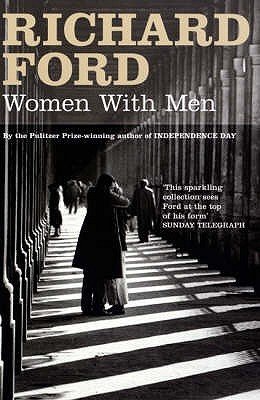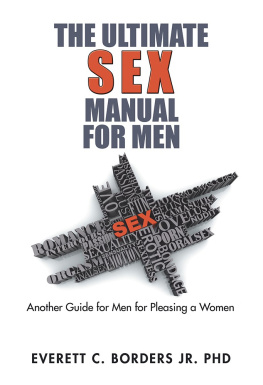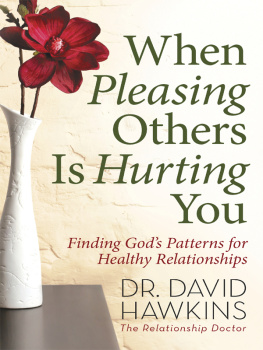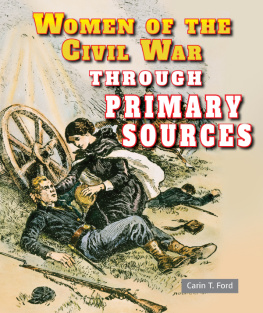Richard Ford - Women with Men
Here you can read online Richard Ford - Women with Men full text of the book (entire story) in english for free. Download pdf and epub, get meaning, cover and reviews about this ebook. year: 2006, publisher: Bloomsbury Publishing PLC, genre: Prose. Description of the work, (preface) as well as reviews are available. Best literature library LitArk.com created for fans of good reading and offers a wide selection of genres:
Romance novel
Science fiction
Adventure
Detective
Science
History
Home and family
Prose
Art
Politics
Computer
Non-fiction
Religion
Business
Children
Humor
Choose a favorite category and find really read worthwhile books. Enjoy immersion in the world of imagination, feel the emotions of the characters or learn something new for yourself, make an fascinating discovery.
- Book:Women with Men
- Author:
- Publisher:Bloomsbury Publishing PLC
- Genre:
- Year:2006
- Rating:4 / 5
- Favourites:Add to favourites
- Your mark:
- 80
- 1
- 2
- 3
- 4
- 5
Women with Men: summary, description and annotation
We offer to read an annotation, description, summary or preface (depends on what the author of the book "Women with Men" wrote himself). If you haven't found the necessary information about the book — write in the comments, we will try to find it.
Women with Men — read online for free the complete book (whole text) full work
Below is the text of the book, divided by pages. System saving the place of the last page read, allows you to conveniently read the book "Women with Men" online for free, without having to search again every time where you left off. Put a bookmark, and you can go to the page where you finished reading at any time.
Font size:
Interval:
Bookmark:
Richard Ford
Women with Men
Kristina
~ ~ ~
I wish to thank my friends Bill Buford, Charles McGrath and most especially Gary Fisketjon, who read these stories and gave me indispensable editorial advice. I wish also to thank my friends Michel Fabre and Suzanne Mayoux for their unique counsel. And finally, I wish to record my debt of gratitude to the stories and novels of Richard Yates, a writer too little appreciated.
The Womanizer
1
Martin Austin turned up the tiny street rue Sarrazin at the head of which he hoped he would come to a larger one he knew, rue de Vaugirard, possibly, a street he could take all the way to Josphine Belliard's apartment by the Jardin du Luxembourg. He was on his way to sit with Josphine's son, Lo, while Josphine visited her lawyers to sign papers divorcing her husband. Later in the evening, he was taking her for a romantic dinner. Josphine's husband, Bernard, was a cheap novelist who'd published a scandalous book in which Josphine figured prominently; her name used, her parts indelicately described, her infidelity put on display in salacious detail. The book had recently reached the stores. Everybody she knew was reading it.
Okay. Maybe it is not so bad to write such a book, Josphine had said the first night Austin had met her, only the week before, when he had also taken her to dinner. It is his choice to write it. I cause him unhappiness. But to publish this? In Paris? No. She had shaken her head absolutely. I'm sorry. This is too much. My husband he is a shit. What can I do? I say goodbye to him.
Austin was from Chicago. He was married, with no children, and worked as a sales representative for an old family-owned company that sold expensive specially treated paper to foreign textbook publishers. He was forty-four and had worked for the same company, the Lilienthal Company of Winnetka, for fifteen years. He'd met Josphine Belliard at a cocktail party given by a publisher he regularly called on, for one of its important authors. He'd been invited only as a courtesy, since his company's paper had not been used for the author's book, a sociological text that calculated the suburban loneliness of immigrant Arabs by the use of sophisticated differential equations. Austin's French was lacking he'd always been able to speak much more than he could understand and as a consequence he'd stood by himself at the edge of the party, drinking champagne, smiling pleasantly and hoping he'd hear English spoken and find someone he could talk to instead of someone who would hear him speak a few words of French and then start a conversation he could never make sense of.
Josphine Belliard was a sub-editor at the publishing house. She was a small, slender dark-haired Frenchwoman in her thirties and of an odd beauty a mouth slightly too wide and too thin; her chin soft, almost receding; but with a smooth caramel skin and dark eyes and dark eyebrows that Austin found appealing. He had caught a glimpse of her earlier in the day when he'd visited the publisher's offices in the rue de Lille. She was sitting at her desk in a small, shadowy office, rapidly and animatedly speaking English into the telephone. He'd peered in as he passed but had forgotten about her until she came up to him at the party and smiled and asked in English how he liked Paris. Later that night they had gone to dinner, and at the end of the evening he'd taken her home in a taxi, then returned to his hotel alone and gone to sleep.
The next day, though, he'd called her. He had nothing special in mind, just an aimless, angling call. Maybe he could sleep with her not that he even thought that. It was just a possibility, an inevitable thought. When he asked if she would like to see him again, she said she would if he wanted to. She didn't say she'd had a good time the night before. She didn't mention that at all almost, Austin felt, as if that time had never happened. But it was an attitude he found attractive. She was smart. She judged things. It wasn't an American attitude. In America a woman would have to seem to care more, probably, than she did or could after one harmless encounter.
That evening they had gone to a small, noisy Italian restaurant near the Gare de l'est, a place with bright lights and mirrors on the walls and where the food was not very good. They'd ordered light Ligurian wine, gotten a little drunk and engaged in a long and in some ways intimate conversation. Josphine told him she had been born in the suburb of Aubervilliers, north of Paris, and couldn't wait to leave home. She had gone to a university and studied sociology while living with her parents, but now had no relationship with her mother, or with her father, who had moved to America in the late seventies and not been heard from. She said she had been married eight years to a man she once liked and had had one child with but did not especially love, and that two years ago she had begun an affair with another man, a younger man, which lasted only a short time, then ended, as she had expected it might. Afterwards she had believed she could simply resume married life more or less as she'd left it, a lifelong bourgeois muddle of continuance. But her husband had been shocked and incensed by his wife's infidelity and had moved out of their apartment, quit his job at an advertising firm, found a woman to live with and gone to work writing a novel which had as its only subject his wife's supposed indiscretions some of which, she told Austin, he'd obviously made up, though others, amusingly enough, were surprisingly accurate.
It's not so much I blame him, you know? Josphine had said and laughed. These things come along. They happen. Other people do what they please. She looked out the restaurant window at the row of small parked cars along the street. So?
But what's happening now? Austin said, trying to find a part of the story that would allow him into it. A phrase, a niche that could be said to invite his closer interest though there didn't seem to be such a phrase.
Now? Now I am living with my child. Alone. That is all of my life. She unexpectedly looked up at Austin, her eyes opened wide, as though to say, What else is there? What more else? she in fact did say.
I don't know, Austin said. Do you think you'll go back with your husband? This was a question he was quite happy to ask.
Yes. I don't know. No. Maybe, Josphine said, extending her lower lip slightly and raising one shoulder in a gesture of carelessness Austin believed was typical of French women. He didn't mind it in Josphine, but he usually disliked people for affecting this gesture. It was patently false and always came at the service of important matters a person wished to pretend were not important.
Josphine, though, did not seem like a woman to have an affair and then talk about it matter-of-factly to someone she barely knew; she seemed more like an unmarried woman looking for someone to be interested in. Obviously she was more complicated, maybe even smarter, than he'd thought, and quite realistic about life, though slightly disillusioned. Probably, if he wanted to press the matter of intimacy, he could take her back to his room a thing he'd done before on business trips, and even if not so many times, enough times that to do so now wouldn't be extraordinary or meaningful, at least not to him. To share an unexpected intimacy might intensify both their holds on life.
Yet there was a measure of uncertainty surrounding that very thought a thought he was so used to having he couldn't keep from it. Maybe it was true that even though he liked her, liked the frankness and direct nature of her conduct toward him, intimacy was not what he wanted. She appealed to him in a surprising way, but he was not physically attracted to her. And maybe, he thought, looking at her across the table, an intimacy with him was the last thing on earth
Font size:
Interval:
Bookmark:
Similar books «Women with Men»
Look at similar books to Women with Men. We have selected literature similar in name and meaning in the hope of providing readers with more options to find new, interesting, not yet read works.
Discussion, reviews of the book Women with Men and just readers' own opinions. Leave your comments, write what you think about the work, its meaning or the main characters. Specify what exactly you liked and what you didn't like, and why you think so.

